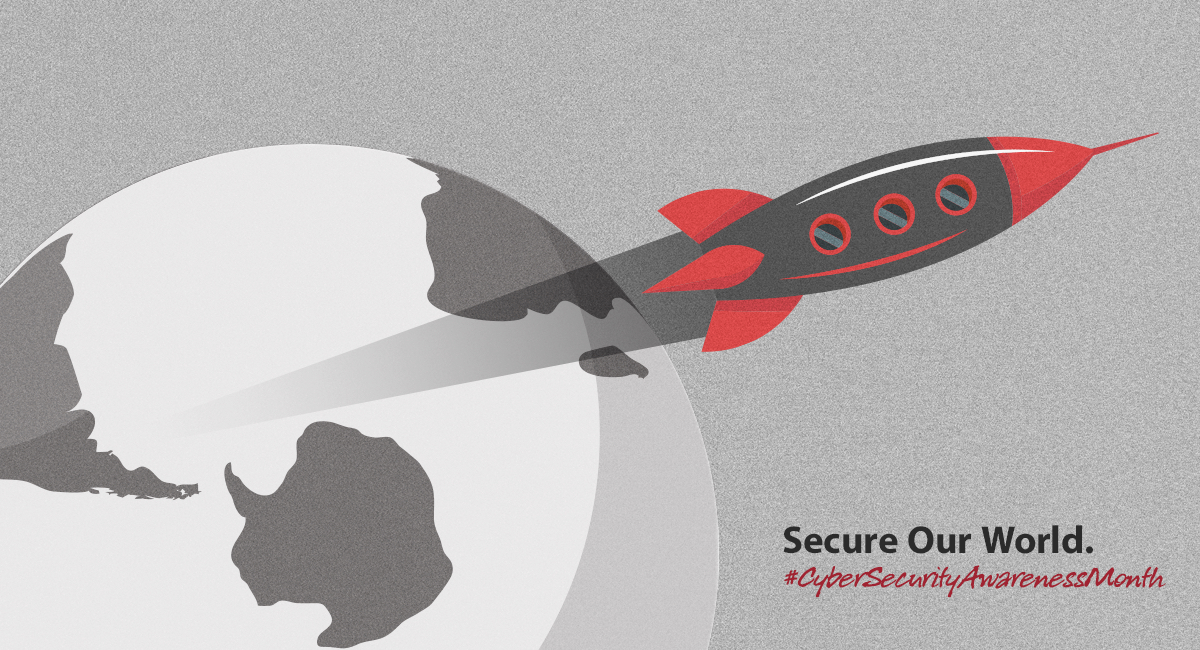
Cybersecurity Awareness Month: Simple Steps to Secure Our World
Every October, we mark Cybersecurity Awareness Month, an international effort that aims to educate individuals and organizations about the importance of staying safe online. This annual campaign, co-led by the Cybersecurity and Infrastructure Security Agency (CISA) and the National Cybersecurity Alliance, brings together companies, schools, government agencies, and non-profits dedicated to cybersecurity education.
Cybersecurity Awareness Month reminds us that we all have a role to play in protecting our part of cyberspace. As cyberattacks and data breaches become more frequent, it’s crucial to understand that simple, proactive steps can go a long way in safeguarding personal and business data.
Four Easy Ways to Stay Safe Online
There are four simple everyday actions that can make us all significantly safer in the digital world:
- Recognize and Report Phishing: Be cautious of suspicious messages, especially those with urgent language or requests for sensitive information. Always report phishing attempts and delete the message.
- Use Strong Passwords: Passwords should be long (at least 16 characters), random, and unique for each account. Using a password manager can help store and manage them securely.
- Enable Multi-factor Authentication (MFA): Adding MFA to your accounts provides an extra layer of protection beyond just a password.
- Update Software Promptly: Software updates are often created to fix security vulnerabilities. Turning on automatic updates ensures you’re always protected.
These steps can become as automatic as buckling your seatbelt—easy actions that help
Secure Our World.
Don’t Take the Bait: Avoiding Phishing Scams
Phishing scams remain one of the most common methods cybercriminals use to steal personal information or spread malware. These attempts often come disguised as emails, text messages, or social media direct messages pretending to be from trusted sources.
Here’s how you can protect yourself:
- Recognize phishing by looking for signs like unfamiliar sender addresses or urgent requests.
- Resist the temptation to click on suspicious links or attachments.
- Delete any phishing messages and report them to help protect others.
When in doubt, verify the authenticity of messages by contacting the company or person directly through official channels.
Strengthen Your Passwords
Weak passwords make it easier for cybercriminals to access your accounts. Strong, random, and unique passwords are your best defense against breaches. Creating these passwords doesn’t have to be difficult with the help of a password manager.
A good password should be at least 16 characters – long, random, and different for each account. Using a password manager ensures you never have to remember these passwords, as the tool generates, stores, and automatically fills them for you.
Enable MFA for Extra Security
Enabling multi-factor authentication (MFA) adds an additional layer of security by requiring a second form of verification, such as a code sent to your phone or a fingerprint. This drastically reduces the chances of unauthorized access, even if your password is compromised.
Keep Software Up-to-Date
Software updates often include critical security fixes. Ignoring or delaying updates can leave your devices vulnerable to cyberattacks. By turning on automatic updates, you ensure your devices are always protected.
Organizations Helping to Secure Our World
Cybersecurity is a shared responsibility and there are many organizations working tirelessly to identify, monitor, and mitigate threats. A few of these key players include:
- The National Cyber-Forensics and Training Alliance (NCFTA): Collaborates with private and public sectors to build a resilient cybersecurity infrastructure.
- The Internet Crime Complaint Center (IC3): Operates as a centralized platform for reporting cybercrimes.
- The Anti-Phishing Working Group (APWG): A global coalition focused on combating phishing threats.
- The Cybercrime Support Network (CSN): Provides resources and support for victims of cybercrime.
- InfraGard: A partnership between the FBI and the private sector to protect critical infrastructure.
These organizations help prevent and respond to cyber threats, making the digital world a safer place for all of us.
The Financial Impact of Cybercrime
According to IBM’s 2024 Cost of a Data Breach Report, the average total cost of a data breach has skyrocketed to USD $4.88 million, up 10% from last year. The most significant costs arise from operational downtime, lost customers, and post-breach responses.
However, organizations that extensively use AI for cybersecurity have reported an average savings of USD $2.2 million per breach. AI-powered solutions can dramatically improve prevention workflows and help manage complex threats.
Red River brings a wealth of experience to enterprise organizations looking to fortify their cybersecurity posture while leveraging the advantages of advanced analytics and AI. Not sure where to start? Contact us to learn more about our Zero Trust and AI assessments, which help organizations chart a path to cyber maturity: [email protected].
written by
Red River
We call ourselves a technology transformation company because we know how to harness the power of technology to change the way you do business and meet mission objectives. Our industry leading technical expertise, strategic partnerships and portfolio of services and solutions that span the entire lifecycle of technology have made us the partner of choice for clients in the commercial, federal and SLED markets interested in optimizing business processes and maximizing the value of their investments. Learn more about Red River.




